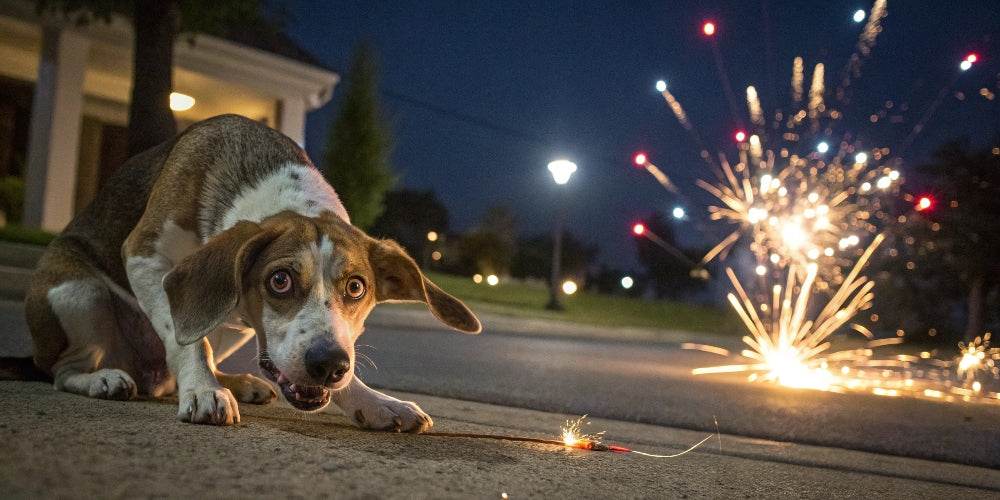
What to do with dogs during the San Juan festival?
Summer is here, and with it the festival of San Juan. The night of June 23rd is a night of celebration for many of us, while for some of our dogs and cats, it's more of a night of terror and discomfort.
The tradition of this magical night dates back many years, when the Catholic Church decided to coincide the celebration of the summer solstice, two days late, with the birth of Saint John the Baptist.
In each town or city, this day can be celebrated in very different ways, but some of the most notable symbolic elements during the date are bonfires, with their purifying fire, music and songs, baths in the middle of the night, or, the most important point for this article: firecrackers and fireworks.
Below, we'll discuss how this night of intense noise affects our furry friends and give you some tips to help them feel better. Don't miss it!
How do fireworks harm animals?
On more than one occasion, veterinary experts have highlighted the potential adverse effects that fireworks can have on pets.
The noise generated by firecrackers or fireworks for animals like dogs and cats can be comparable to that of a very intense storm for us, or even more so. That's why this night is often hellish for some of them. causing them a lot of stress and anxiety or even death in the most serious extreme cases.
Some of the symptoms that fireworks are affecting your pet may include:
- Aggressiveness or temperamental behavior
- Crying
- Compulsive and senseless barking
- Excessive drooling (more than usual)
- Urinary incontinence
- Lowering your head or having your tail between your legs
- Seizures
Keep in mind that dogs can hear up to four times further than a human, so noisy nights like Midsummer Night are often a real torture for them, and we need to find a solution.
How to calm your pet from the noise of fireworks?
If your dog or cat is afraid of firecrackers, Arquivet has some dog-friendly recommendations to help you get through this day:
- Visit a veterinary professional before the festival for personalized advice. Every pet and situation is different, so the solutions may vary.
- Provide natural anti-anxiety medications or, if necessary, medications that help with relaxation. Obviously, always under the supervision of a professional.
- Reward calm behavior by giving your dog treats. This way, we'll reinforce his behavior when he's calm.
- Prepare a corner or burrow where it can relax. It's very important to do this a few days beforehand so the animal has enough time to get used to it. There are many ways to prepare it, whether with boxes, cushions, blankets, mattresses... and finally, cover the burrow with a blanket or something that muffles the noise. It will thank you!
- Close windows and blinds, but not the doors. This will allow your furry friend to move around the house if he needs to and prevent his stress or anxiety from increasing due to being locked up.
- Play relaxing music, classical or otherwise, to capture their attention and help them tune out outside noise. A television could also help.
- Accompany our furry friend at all times, so that we can calm him down with our presence.
- Take a getaway with your pet, away from the city and the noise of firecrackers. A place surrounded by nature can be the ideal place for this short vacation.


